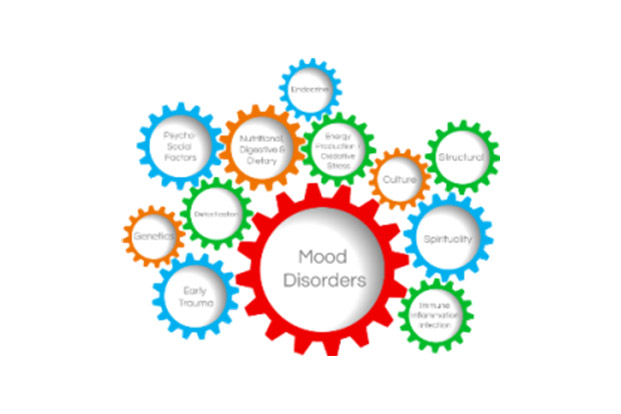Mood Disorder
Apr 19, 2022
Mood Disorders are characterized by disturbance in an individual’s mood which is significant and pervasive and effects his/her personal, social and or occupational life. A normal mood highlights the general personality of a person and his or her reaction to every day situation , however if a person has a mood disorder, their reactions are different and can be termed as an overreaction. The mood disorders are categorized into Depressive Disorders & Bipolar Disorders depending upon the quality of mood & fluctuations in its quality. The key feature of longitudinal course of mood disorder is a tendency towards cyclicity or recurrence.

Management of Mood Disorders:
- Identification: Despite wide spread prevalence of mood disorders, only one third of individuals are properly diagnosed. This is also because, most people with mood disorder present with somantic or physical complaints like unexplained pain, weakness, fatigue, sleep disturbance, appetite disturbance, etc. It’s imperative to understand that persistence of a mood state like sadness for too long is pathological and needs evaluation.
- Diagnosis: Psychiatric evaluation of mood disorders is primarily clinical and is based upon validated international criteria listed in DSM-V or ICD-10. Depressive disorder is diagnosed when depressed mood or loss of interest is persistent for more than 2 weeks with or without other symptoms like sleep disturbance, appetite disturbance, agitation, restlessness, negative thoughts, feeling of worthlessness, suicidal ideation, etc. Bipolar disorder is diagnosed when there are distinct episodes of mania or hypomania when a person is excitable, energetic, over talkative with or without other symptoms of excessive excitation like irritability interspersed with episodes of feeling sad, low or dull (depression).
Treatment for Mood Disorders:
Depending upon the history, intensity and frequency of episodes, treatment of mood disorder is planned.
- Mild depressive states which are reactive or associated with adjustment issue can be treated with psychotherapy like cognitive behavior therapy (CBT).
- Moderate to severe depressive disorders required pharmacotherapy with or without psychotherapeutic intervention.
- Bipolar Affective disorders are primarily biological disorder and mood stabilizing medicines are main stay of treatment.
- Psychotropic medicines available today are safe and effective in management of mood disorder and under expert guidance are well tolerated.







